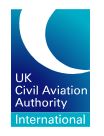A dangerous goods inspector plays a critical role in ensuring the safe transportation and handling of hazardous materials and dangerous goods within the aviation industry.

What is a Dangerous Goods Inspector?
A dangerous goods inspector plays a critical role in ensuring the safe transportation and handling of hazardous materials and dangerous goods within the aviation industry.
They are responsible for inspecting and enforcing compliance with regulations and standards governing the packaging, labelling, documentation, and transportation of dangerous goods by air.
Dangerous goods inspectors assess the adherence of airlines, cargo operators, and other stakeholders to safety protocols, proper handling procedures, and regulatory requirements.
They verify that appropriate training, documentation, and safety measures are in place to prevent accidents, protect personnel, and safeguard the environment.
By conducting inspections and providing guidance, dangerous goods inspectors contribute to maintaining the highest levels of safety and security in the transportation of hazardous materials by air.
Course Overview
This course provides newly appointed Dangerous Goods Inspectors with the theoretical knowledge needed to fulfil their regulatory role.
Based on the UK CAA’s own training programme for its Inspectors and delivered by UK CAA Flight Operations Specialists, this course is designed to provide the foundation of knowledge required prior to embarking on practical and on-the-job training.
Who should attend?
This course is suitable for you if you are responsible for dealing with dangerous goods in an operational capacity, or have oversight of such activities.
It may also be beneficial for you if you are responsible for implementing ICAO Annex 18 requirements within your state.
Key topics
This training course will include the following topics:
Dangerous Goods Regulations – An Historical Perspective
State Responsibilities in Annex 18
Transporting Dangerous Goods by Air – introduction to general principles; Technical Instructions; and the supplement and use of other ‘field documents’
Detailed Requirements for Transporting Dangerous Goods by Air
Responsibilities of shippers, operators and states
Dangerous Goods Accidents and Incidents
Granting of dangerous goods approvals and exemptions
Methods of implementing the State’s responsibilities
Course objectives
By the end of the course delegates will have understanding of:
ICAO Annex 18 and key areas of the Technical Instructions and Supplement
The resulting responsibilities of states
What constitutes as dangerous goods and the ways in which it should be packed, marked and shipped together with suitable documentation
Who is involved in the transportation of dangerous goods and their responsibilities
Responsibilities during dangerous goods emergencies
Which dangerous goods can be shipped, including areas that need to be covered when auditing the appropriate organisations to ensure that procedures and documentation are compliant
As the UK Civil Aviation Authority’s independent technical cooperation arm, we unite and export half a century of UK CAA knowhow to help States improve and responsibly grow air transportation.
By connecting the global aviation family to real-world UK CAA expertise, we help States achieve a better aviation system; one that enhances prosperity, tackles societal and environmental challenges, and promotes an innovative, sustainable future.
Working with national Governments, aviation agencies, regulators and industry organisations, our advice, training and examination services have helped countless States pursue robust, sustainable regulatory systems.
We provide holistic advice, often above and beyond UK, ICAO, and European-based standards, harnessing the UK’s treasure chest of regulatory mastery, aviation heritage and prevailing innovative landscape.
Through enduring partnerships, we take States on a journey – from solving evolving compliance challenges, and getting essential oversight just right, to progressive transformations for advanced regulatory performance.
As a founding member and leading voice within the International Civil Aviation Organisation, the UK has been a powerhouse developing the regulatory DNA that aviation relies upon.
Today, our subject matter experts continue to pioneer new international standards and forward-looking regulatory practices to help the future of flight flourish.
By improving aviation and aerospace standards across the globe, together we can make a truly connected world a reality, uniting people and businesses for a better and more sustainable future.
Our Vision
A world where every State has a safe, secure, sustainable, and fair aviation system, that is continually improving
Our Mission
To develop partnerships and share learning. Connect our partners with UK CAA expertise, supporting their people to lead tomorrow’s aviation world. To reinvest a sustainable proportion of our funds to extend our reach and fulfil our purpose.
Our Purpose
To improve aviation and aerospace standards across the globe.
© 2025 coursetakers.com All Rights Reserved. Terms and Conditions of use | Privacy Policy